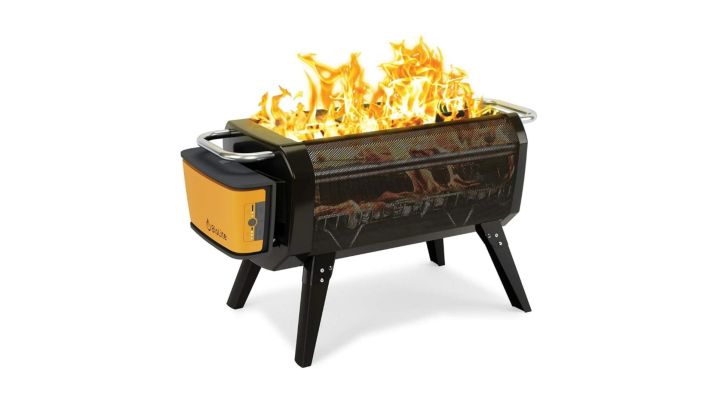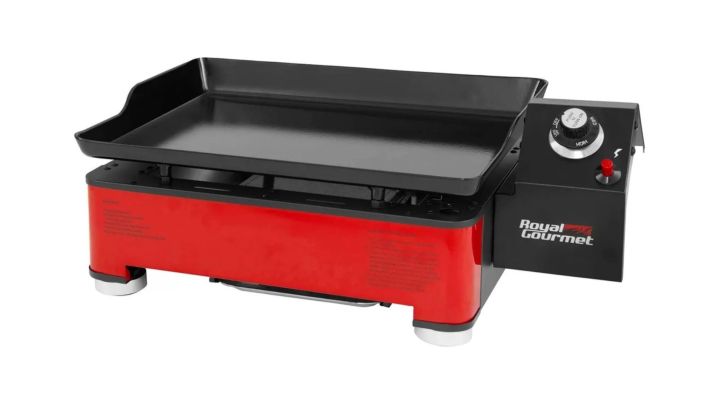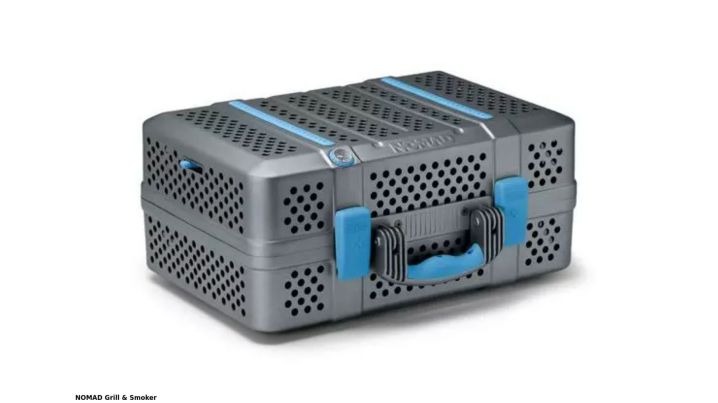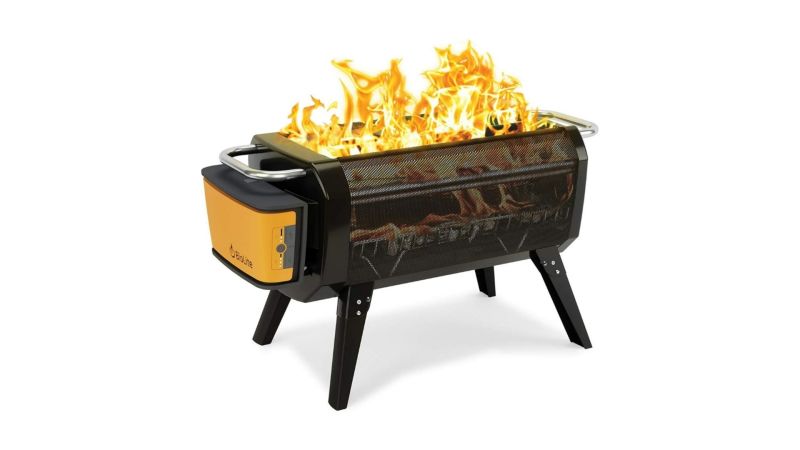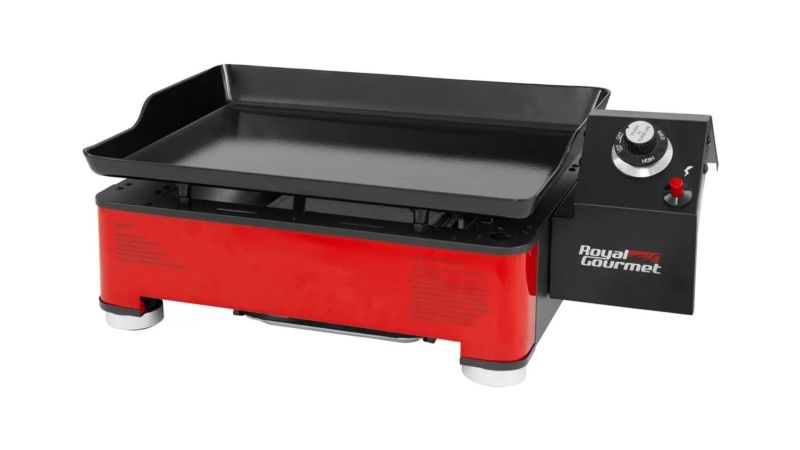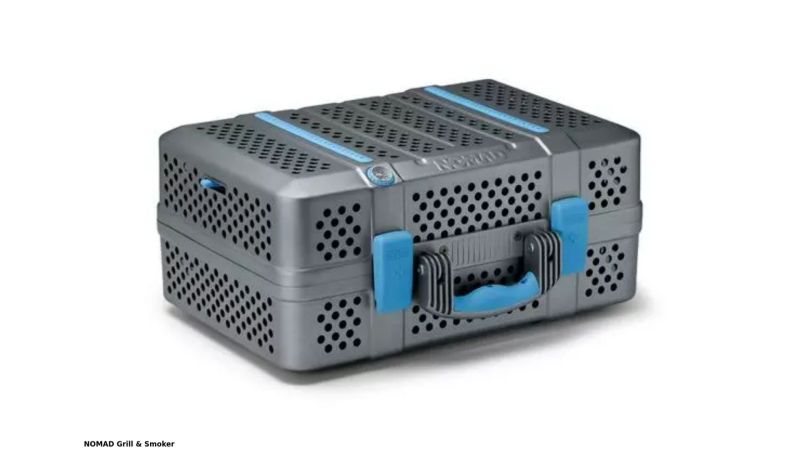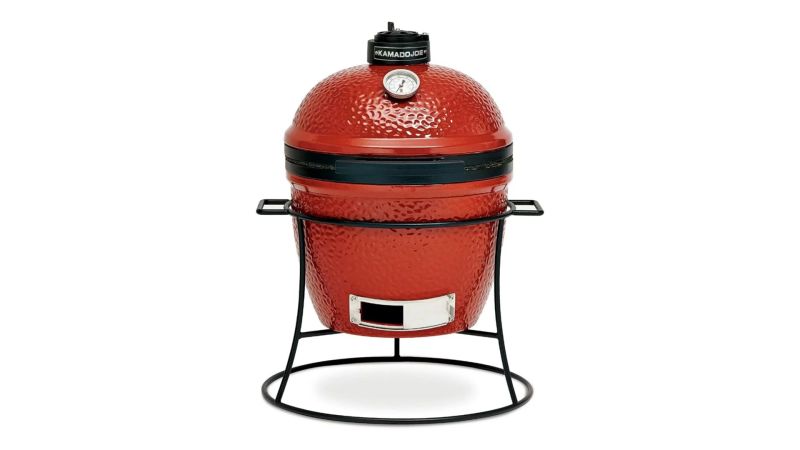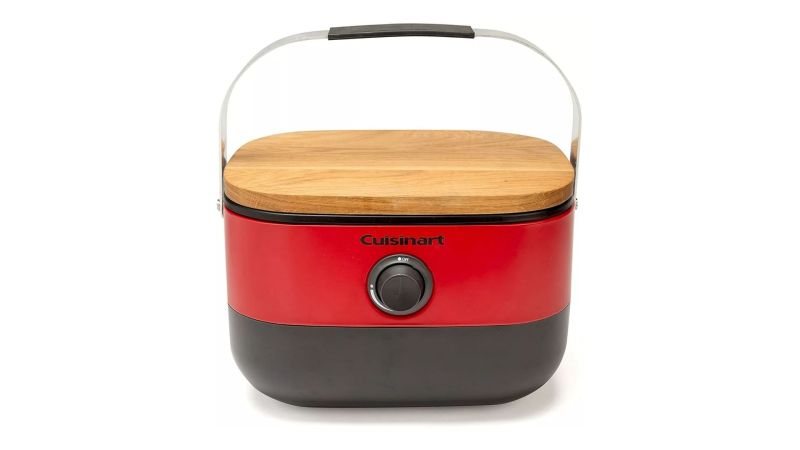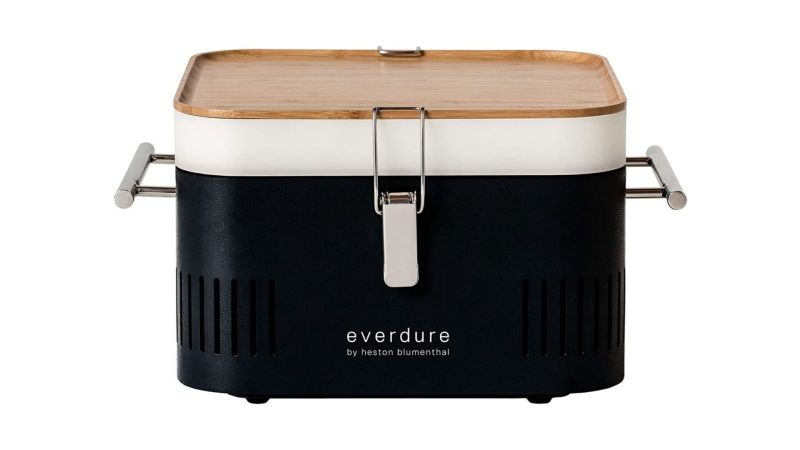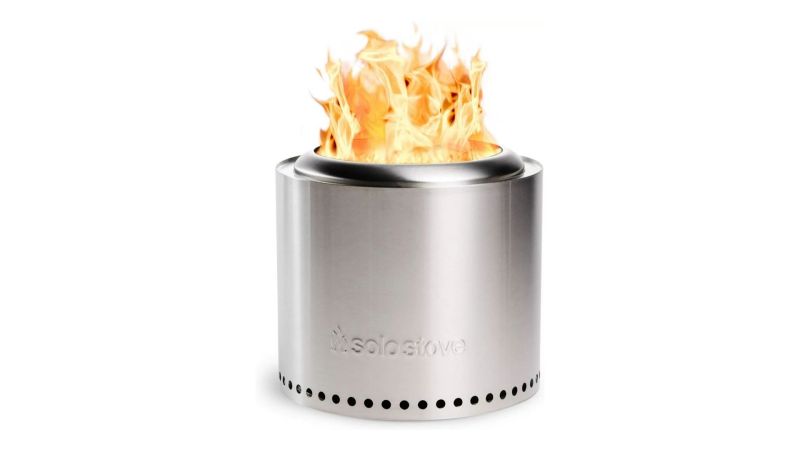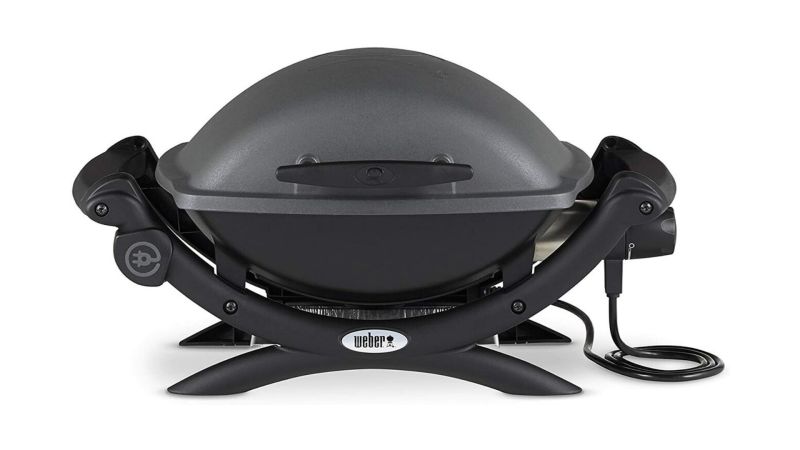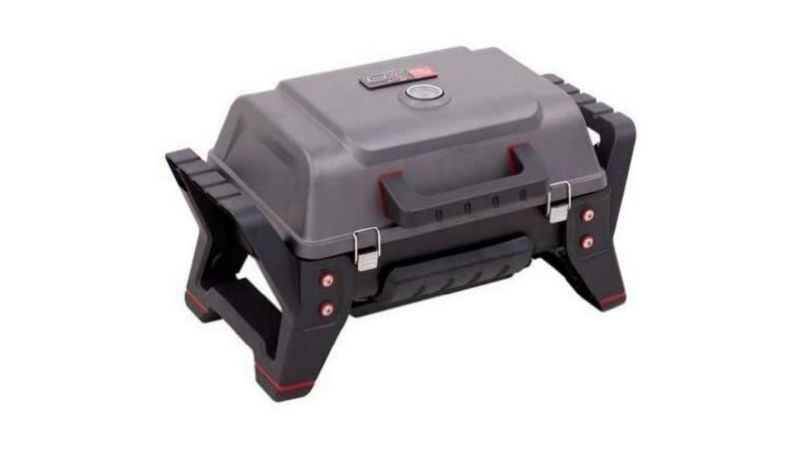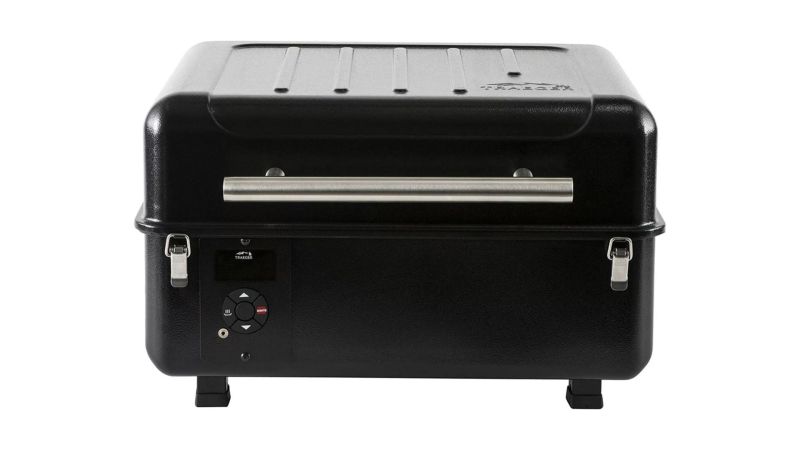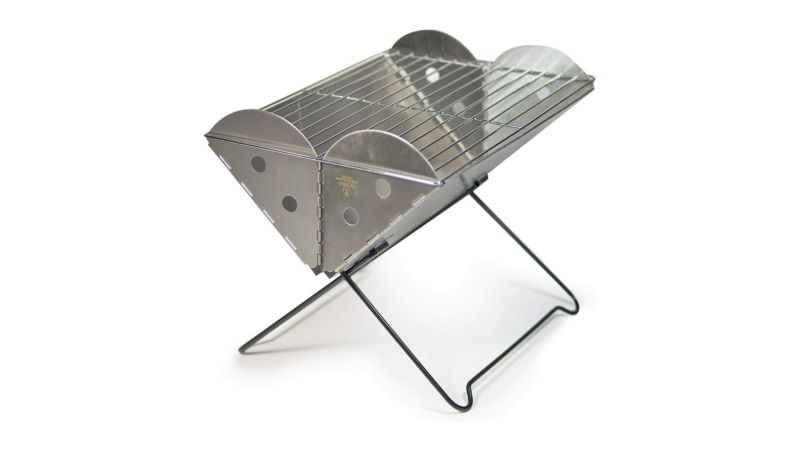We may earn revenue from the products available on this page and participate in affiliate programs.
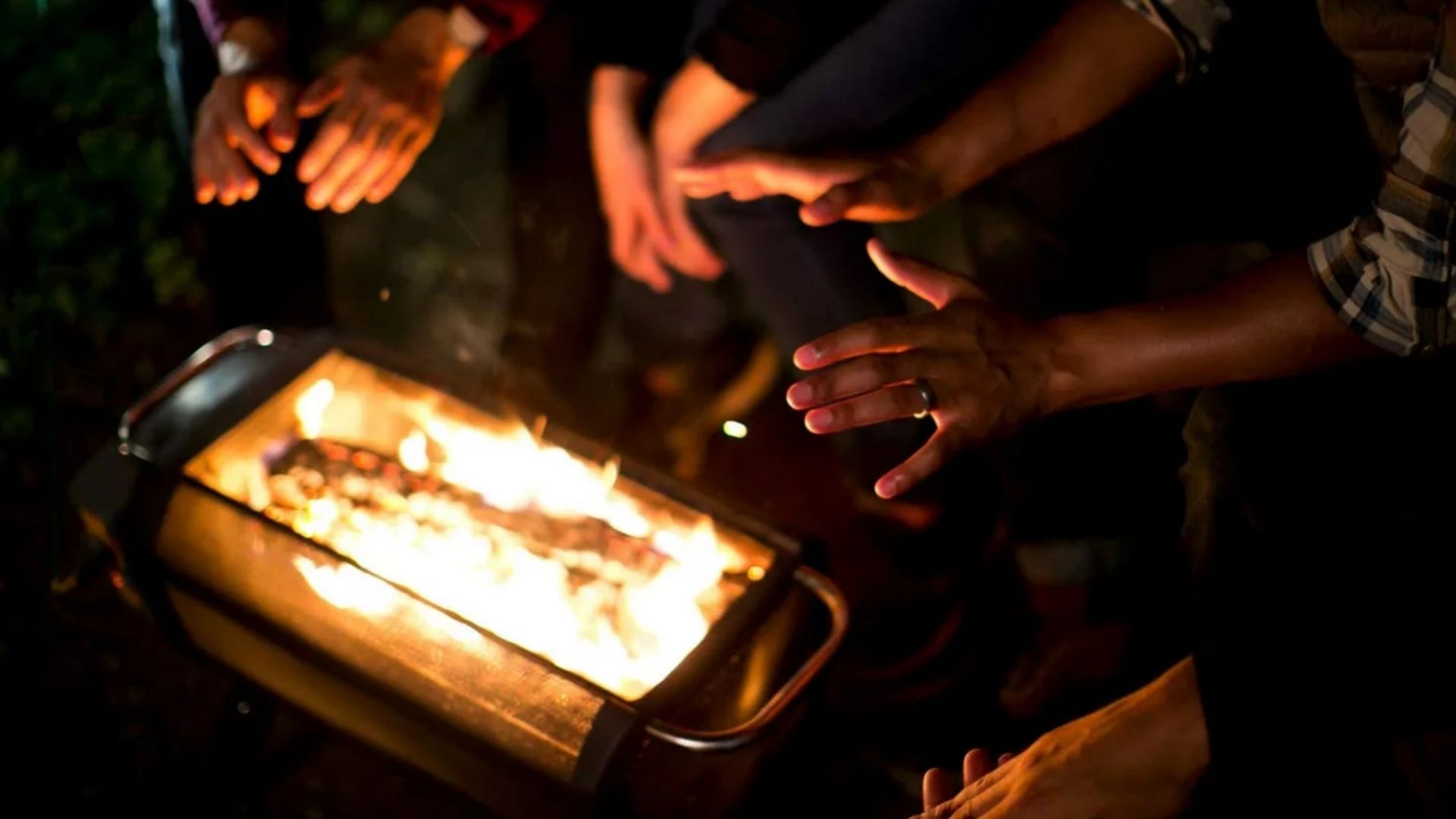
I’ll admit to not using a camping grill for a long time. I was a practicing member of the American Society for Clif Bars and Jetboil Ramen. As a result, my off-grid nutrition was adequate, but not the kind of thing you’d get excited about.
That’s when I discovered the overland craze. I saw people whipping out grills and cooking ribeye, fresh vegetables, and the earthly heaven that is a cast-iron-skillet cobbler. Goodness gracious. Suddenly, a camping grill appeared very high on my list of priorities.
It doesn’t matter if you prefer gas, charcoal, or wood; there’s a grill out there that can transform your camping experience. These portable grills are designed to be relatively compact and easy to transport without making a mess of your car or RV like the hibachis of the past. They won’t just make you like campsite cooking more—they might make it your preferred way to prepare a meal.
Best Overall
BioLite FirePit
Best Value
Royal Gourmet PD1202R
Editor’s Pick
Nomad Grill
Best Grill for RV Camping
Kamado Joe Jr.
Best Gas Grill for Camping
Cuisinart CGG-750
Best Charcoal Grill for Camping
Everdure Cube
Best Wood-Burning Grill for Camping
Solo Stove Ranger
Best Electric Grill for Camping
Weber Q1400
Best Infrared Grill for Camping
Char-Broil Grill2Go
Best Smoker for Camping
Traeger Ranger
Best Lightweight Camping Grill
UCO Flatpack
Why you should trust us
The general camping public has divided opinions on how campsite cooking should be done. We get that, and we’ve worked hard to satisfy everyone with a range of options that are objectively awesome. Are you a diehard charcoal fan who cooks every meal like it’s a tailgate party? We’ve got you covered. Do you prefer the clean-burning efficiency of propane and propane accessories? We have options for you, too. We’ve even cooked all summer on a modern take on the classic fire pit, so we know what works and what doesn’t.
Types of camping grills
If you thought buying a grill was as simple as going to the hardware store and picking the right size, you’ve got another thing coming. Besides picking a side in the great Gas vs. Charcoal War, you’ll need to consider how you’re going to transport your grill and how much cleanup you’re willing to do.
Gas grills
Gas grills are all about efficiency. Setting them up is as simple as screwing a bottle onto a hose. They heat up almost instantly, burn at a consistent temperature that’s effortless to control, and don’t make a mess. Propane bottles are also light, compact, and last quite a while, so they’re easy to pack. That’s why the vast majority of ultralight camp stoves use propane canisters. Propane also powers infrared grills via a heating element that separates the fuel from your food.
A dividing line appears when flavor comes into the equation. Propane is (arguably) flavorless, which some people prefer. Others want to have the crispy goodness that can only come from charcoal or wood. Those people aren’t wrong, but you can’t deny the convenience of gas grills.
Charcoal and wood grills
Wood-burning grills are as old-school as it gets. Charcoal is just a more efficient evolution of the same approach. Both are popular because of the flavor they impart in everything they cook. It’s hard to describe and impossible to replicate. For many, it’s simply the only option and it’s the reason people are willing to shell out hundreds (or thousands) of dollars to put a smoker on their back porch.
The drawback of wood and charcoal is their relative lack of practicality. Instead of a little propane bottle, you’ll need to lug around wood, kindling, and tinder, or a big bag of dirty briquettes. If looking like Loretta Lynn’s dad doesn’t bother you, the flavor could be worth it.
Electric grills
The cleanest fuel source is electricity because it doesn’t require any combustion at all. Electric grills are popular for indoor use because they plug right into the wall and are safe to use in confined spaces. They also tend to be easy to clean, with non-stick cooking surfaces that can be wiped off once they’re cool.
The lack of a traditional grill grate makes electric grills good for runny foods like bacon, eggs, and pancakes, but some people feel like some of the magic of grilling is lost as a result. There’s no smoke and a less-satisfying aroma when you use electricity, and the reliance on an electric outlet can be limiting.
Camping grill features to consider
Fuel source
The most important consideration in grill selection is the type of fuel you’ll be using. Electricity is the easiest and most convenient––providing you have an electrical outlet within a few feet of your campsite. Wood and charcoal are famous for their delicious flavor, but they can be a hassle to use. Propane splits the difference in terms of flavor and convenience.
You should also consider how you’ll get the fuel for your grill. Electricity needs to be on-hand, whether it’s from a permanent outlet or a portable source. Propane and charcoal require a stop at the store on your way out of town. Wood is usually available in the wild, but there might be rules about cutting and you may not want to play lumberjack before you can cook.
Portability
Camping grills come in all shapes and sizes. People who camp in RVs and toy haulers can afford to bring a regular-sized home grill everywhere they go. Car camping strikes a nice balance because it accommodates any fuel source and midsized camping grills that offer a great balance between size and portability. Camping by foot is obviously the most limiting.
As size decreases, so does the amount of cooking surface you’ll have to work with. Compact camping grills can generate plenty of heat, but they might require you to cook in batches to feed more than one or two people. Before you pull the trigger on a camping grill of your own, think realistically about how you plan to carry your grill and how many people you’ll be camping with.
Cleanup
Just like cooking at home, using a camping grill requires cleaning up when you’re done. The difference is the friendly neighborhood wildlife that will tear up your camp if you forget. In addition to food scraps, you’ll need to clean your grill and deal with the remnants of whatever fuel source you use.
Electric grills just need to be unplugged and wiped clean. Propane bottles can be detached and set aside for next time, or thrown away if they’re empty. Larger tanks can be refilled. Wood and charcoal make the biggest mess, so you’ll need to have a plan for getting rid of the ashes. Make damn sure they’re cold (and preferably wet) before you throw them away or leave your campsite.
Benefits of camping grills
Eating well
We know why you’re here. The idea of munching on trail mix and jerky can’t compare to the sizzle of meat on the grill or waking up to bacon and eggs. Backpacking may require MRE-style austerity, but any other type of camping can––and should––be more enjoyable than that.
With your grill of choice and a few key accessories, you can cook an absolute feast if you want to. First, get a good cooler to keep meat, dairy, and fermented carbohydrate beverages cold. Then, stock up on tongs, skewers, and a few seasonings. Cast-iron pans are heavy but they’re a great addition to any gas, wood, or charcoal grill (electric grills use solid skillets, so a pan isn’t necessary).
Protecting the environment
Nobody’s questioning your bushcraft skills, but camping grills are objectively safer than building a traditional campfire. By controlling any fire you create within the confines of a quality grill, you can be a better steward of the natural environment and earn Smokey’s approval.
Gas and electric grills make it pretty hard to start an unintended fire. Just make sure all connections are up to snuff, and you’ll be golden. Charcoal and wood grills require extra care. Store extra fuel away from the hot grill, be mindful of nearby tinder, and dispose of ashes properly. Once you’re done cooking, allow any ashes to cool before removing them and giving them a good soaking.
Saving space
Camping grills are like traditional grills, except they’re much smaller and lighter. You’ll naturally have to give up some surface area on your grill and might not get all the bells and whistles, but the reward of a hot meal is worth it. Pick a grill that’s right for the number of people you usually camp with.
Gas and electric grills save a ton of space by eliminating the need to carry fuel or making it incredibly compact. A battery bank or propane bottle is easy to toss in the car, boat, or RV. Charcoal and wood take up more space, and they aren’t always very clean. You may be able to gather wood around your campsite, but make sure it’s allowed.
Pricing considerations for camping grills
Less than $100
There’s no shortage of affordable camping grills, and many can be found for less than $100. Lots of the options in this price range are perfectly serviceable and can go a long way in upgrading your campsite.
As you’d expect, opting for an entry-level camping grill typically involves sacrificing a few features. Grills that cost less than $100 are generally pretty small, although some wood-burning options buck the trend––especially folding grills. If you camp by yourself and don’t mind a more rugged experience, there’s no reason you can’t buy one of these budget-friendly grills and have an awesome time on your next outdoor adventure.
Between $100 and $500
This is the sweet spot, friends. Most of our favorite camping grills fall in this price range. Here, you can expect to find grills with high levels of build quality, convenient features, and enough surface area to feed a few guests without eating in shifts. Odds are good that this is where you’ll end up making your purchase.
The biggest challenge of shopping for this type of grill is narrowing down your search. There are so many options here that you need to know what features and characteristics matter to you the most. That’s why we’ve broken down the advantages and disadvantages of each fuel type, size, and degree of cleanup.
More than $500
Premium brands haven’t overlooked the camping grill market, and there are some options that blow right past the $500 mark. As you might guess, manufacturers like Big Green Egg, Traeger, and Kamado Joe have seized on this opportunity. We focused on their more affordable (and portable) options for this gear guide.
Other high-dollar options include fire pits from brands like Solo Stove and Breeo. These premium fire pits stake their claim based on heavy-duty materials, excellent craftsmanship, and smokeless design. They burn wood and require accessory cooking kits to be used as a grill. They aren’t always the most portable, but the experience is hard to beat.
How we chose our top picks
Based on the amount of time we’ve spent using various grills, you could say this article was years in the making. We took that knowledge with us to search the marketplace for the best camping grills you can buy right now. We prioritized function above all else because if you can’t count on a grill to work properly, it doesn’t belong anywhere near this list. The recent boom in demand for camping grills has resulted in a surprising amount of innovation, so we sought out grills that provide creative solutions to old problems. As always, the final cut came down to which ones we’d personally want to fire up at our own campsite.
FAQs on camping grills
You’ve got questions, Task & Purpose has answers.
Q: Are camping grills safe?
A: Generally speaking, yes. As long as you use your camping grill correctly, it should be safe.
Q: Can you grill on a camping stove?
A: You can, and you should. It’s delicious.
Q: Is camping gas the same thing as propane?
A: Yes. When you see a camping grill attached to a bottle of some sort, it’s burning propane. Some grills burn natural gas, but they need to be hooked up to an established gas line like the one at your house.
Q: Are camping grills allowed at campsites and dispersed camping areas?
A: You bet they are! Most camping locations actually require some kind of grill or camp stove because they present less of a fire risk. Always check the rules for your campsite before you leave home to make sure you have the appropriate gear.
Our gear section
Scott Murdock is a Task & Purpose commerce writer and Marine Corps veteran. He’s selflessly committed himself to experiencing the best gear, gadgets, stories, and alcoholic beverages in the service of you, the reader.
